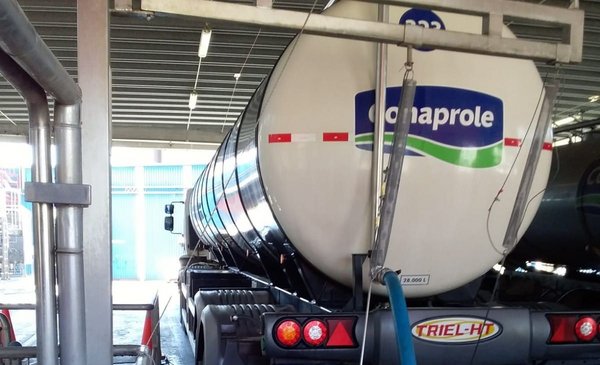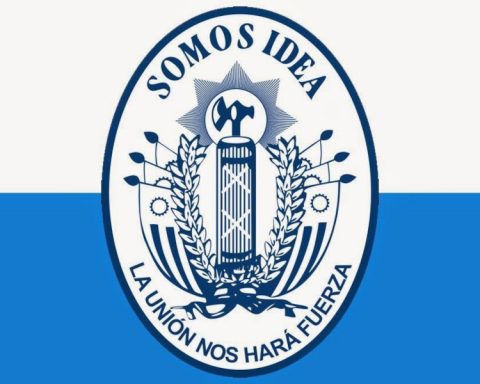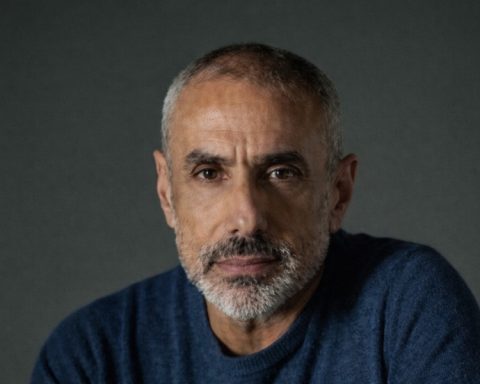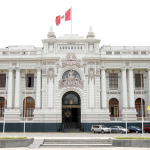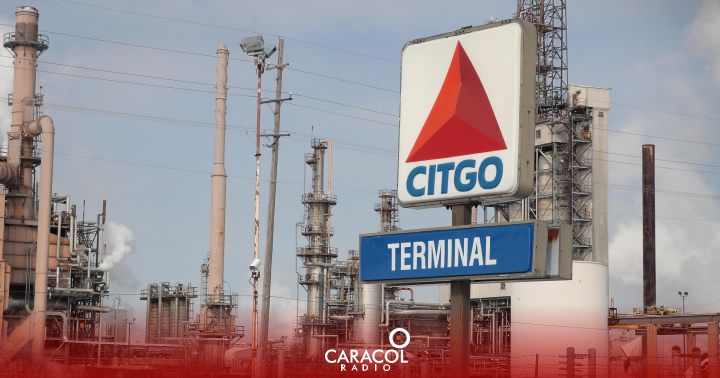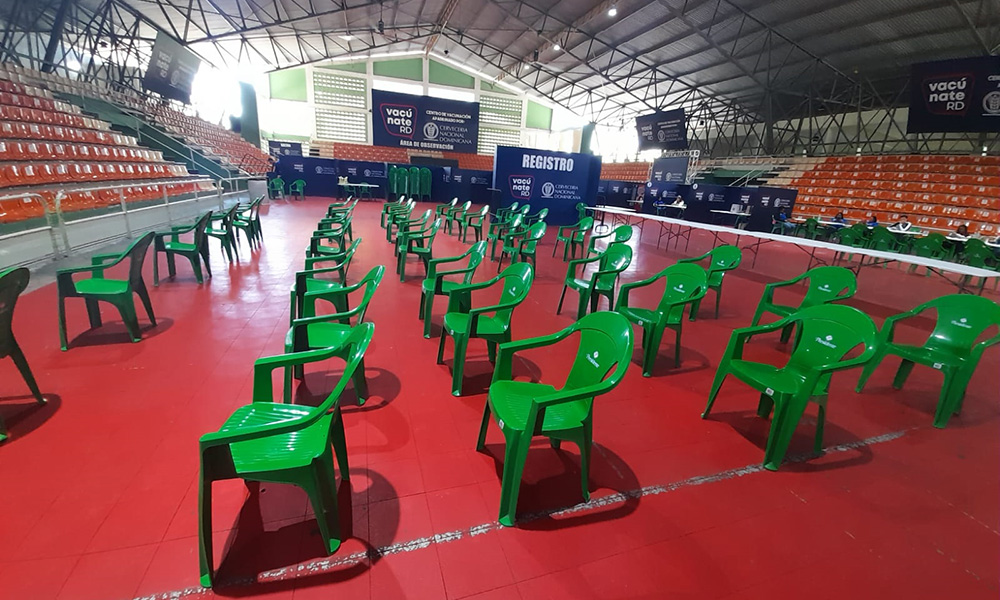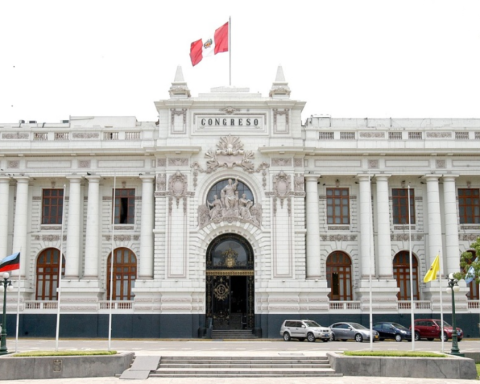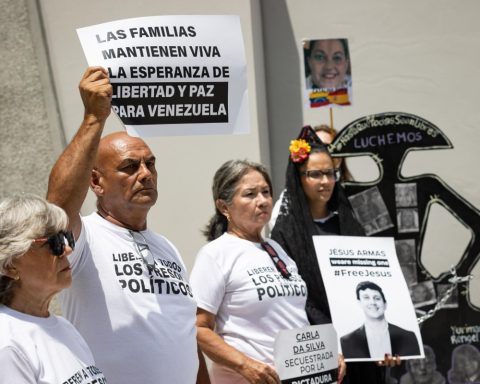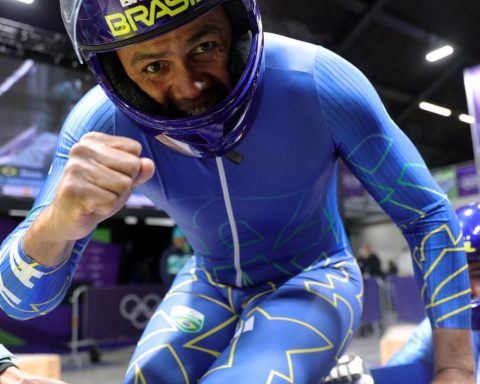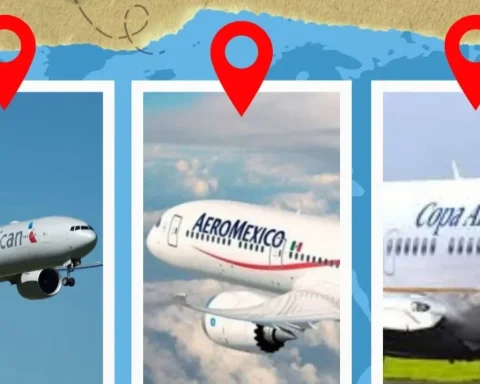Conaprole claims a millionaire compensation for almost US$ 62 million from the Uruguayan State for an export business to Venezuela agreed during the second administration of Tabaré Vázquez (2015-2019).
The Livestock Minister Fernando Mattos declared this Monday at a press conference that his portfolio received information in the last hours on the lawsuit by which Conaprole demands the payment of US$ 31.8 million for shipments of powdered milk to Venezuela that have not yet been collectedn, “to which add another US$ 30 million for damages“, which raises a total of US$ 61.8 million demand.
“We have received it recently and we are analyzing the content of the demand. Supposedly there is a government guarantee that was granted at the time and that we are verifying its veracity in order to be able to respond“, Mattos said after meeting with President Lacalle Pou at the Executive Tower on Monday, where other issues of the current situation were also addressed, such as the impact of the war in Ukraine.
Mattos indicated that it is a “fact of reality” that there is a lawsuit against the Uruguayan State for “supposedly having been” a guarantee for an export business during the past government administration, and that “it would mean a significant loss for the state coffers.”
The statements to Value added Radio Carve Livestock Undersecretary Ignacio Buffa said Tuesday that among the issues of “concern” that was discussed with President Lacalle Pou was the lawsuit that came from Conaprole against the State. “Those powders brought these sludge and today we are going through a legal situation due to the business with Venezuela that the previous administration carried out,” he commented.
The hierarch considered that the “trial” is a “good instrument to settle the responsibilities that could have been” in that process. Buffa admitted that Conaprole is within its rights as a company to claim payment for an export business. “Something must have been done wrong back then for today to be in this situation of trial with the State,” he said.
The Undersecretary of Livestock said that the The legal area of his portfolio is analyzing a set of documents that Conaprole submitted to argue that the Uruguayan State was the guarantor of this foreign trade operation to answer that lawsuit before the Justice.
Buffa declared that when the transition process took place with the previous authorities of the Ministry of Livestock of the Broad Front, no documents related to Conaprole’s export business with Venezuela were received.
At the end of 2018, the dairy farmer and member of the Canelones Dairy Farmers Association (ATC) Justino Zavala The Presidency of the Republic submitted a request for access to public information in which it requested to know the “Full text of the Memorandum of Understanding signed in 2015 between the Oriental Republic of Uruguay and the Bolivarian Republic of Venezuela.”
The answer came almost a month later, through a resolution signed by the deputy secretary Juan Andrés Roballo, in which he requested a longer term “for the purpose of searching for the requested information.” In February 2019, Zabala received a resolution signed by the former Secretary of the Presidency, Miguel Ángel Toma, indicating that “no memorandum” had been signed between the two countries, but “an agreement between the two countries that established the cancellation of a credit from Venezuela for the purchase of crude oil, and in turn, Venezuela’s commitment to use that money to pay exporters, specifically in the food sector”.
“The times for negotiation are exhausted,” he had declared. last August Álvaro Ambrois, president of Conaprolealluding to the efforts aimed at the cooperative collecting the debt that Venezuela maintains since 2015.
the genesis
Venezuela’s debt with the Uruguayan cooperative its genesis was in 2015. That year the Uruguayan State and the Caribbean country signed an agreement to market various national foods to that market in exchange for canceling an Ancap liability with the oil company PDVSA. “It is pure oxygen for the country,” said former president Tabaré Vázquez on July 6, 2015, while leading a press conference at the Executive Tower together with several ministers in which he announced a series of agreements with the Venezuelan government that enabled the cancellation of Ancap’s debts with PDVSA and the sale of thousands of tons of rice, powdered milk, soybeans, chicken and cheese.
TFollowing the agreement, the sale of 265 thousand tons of food was allowed, including 120 thousand tons of rice, 44 thousand tons of powdered milk, 80 thousand tons of soybeans, 9 thousand tons of chicken and 12 thousand tons of cheese, for about $300 million. In return, Ancap canceled a debt in advance with PDVSA for US$430 million for the purchase of oil at a steep discount, since it ended up paying US$267 million.
Initially The plan was to create a trust in Bandes Uruguay with the money that Ancap paid off the debt with the Venezuelan state oil company, and then the Uruguayan exporters would collect from that financial instrument as they agreed on their sales to the Caribbean country. However, That trust was not established and Ancap ended up transferring its payment to a Chinese bank due to a condition set by PDVSA, as Vice President Raúl Sendic explained at the time.
“We have already fulfilled our part. The truth is that in good faith we deposited the money and they did not deposit us. In reality it was: we put the money in the Bandes and from there the debt was collected. Well, that money did not go to the Bandes but to another side and we were surprised in our good faith,” acknowledged former Foreign Minister Rodolfo Nin Novoa.
Shipments with Conaprole production were made and about two thirds of the total operations were collected (about US$ 60 million)even though there was a remainder pending collection for some US$ 30 million. The last payment was made in January 2019, when the government headed by President Nicolás Maduro paid US$ 8.5 million. Sales prices to Venezuela used to be well above the international market, in part because the risk of having problems or delays with payments was common in this market.
